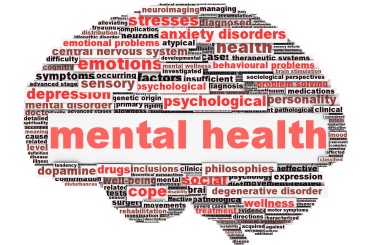Many insightful issues and questions were included in your comments. I’ll try to deal with them concisely and welcome an idea exchange. I’ll address your issues with an abbreviated Q, followed by my response. Let me explain that my engagement on mental health services derives from more than 10 years as a day to day care giver for a diagnosed paranoid schizophrenic son starting in around 1999 when he was 33 and I was close to starting my retirement. My experience involved very frequent involvement with psychiatrists, counselors, outpatient centers and psychiatric hospitals, primarily in Texas but also Mississippi and Florida. I have no experience with the Delaware psych community. I initiated four psychiatric hospital admissions for my son; he has had many more since those four.
Q: Involuntary hospitalizations and meds. My experience with these involved securing a mental health warrant, which was reviewed by a mental health court judge based in a psych hospital; it included a written statement from a family member/guardian/law enforcement official, describing an incident allegedly showing a danger to the patient or others. The court provides a lawyer for the patient who argues against hospitalization. The judge rules for a 48 hour observation and the patient is picked up by trained constables and taken to the hospital. After 48 hours, if the clinicians recommend further treatment, the patient is admitted, often for a week or two for counseling and meds. If the patient refuses meds, the clinicians can apply to the court for involuntary meds administration, usually in extreme, chronic cases. Again, the patient is represented by a court appointed lawyer to argue against. Thus, due process is provided the patient.
Q. Single Payer Solution: You’ll get no argument from me here; I’ve been on board with that for a decade. The private pay insurance game along with private, for profit psych hospitals are legendary for bleeding families dry until the insurance runs out.
Q. Going back to the bad old asylum days: With due process mostly practiced across the country, I think this is highly unlikely, excepting for some combination of criminally insane and chronic, psychotic medication avoiders who have a history of violence or major self neglect.
Q. Danger to themselves or others: I argue that danger consists not only of violent acts of self or others harm, but major public health hazard self neglect as well as those with the incapacity to stay on their meds and live with family, not an option for many, with manageable behavior to provides some reasonable quality of life for family. The interpretation must be broadened to include creating a living hell for caregivers and catastrophic self neglect. All adjudicated with due process, but due process of all involved, not just the patient as is the current situation.
Q. How to implement: That would be a textbook I’m not qualified to write. But I think a national care program is a necessity, borrowing best practices from states and other countries with the best outcome data.
Q. Side effects of meds: Many new and minimal side effects anti-psychotic meds available today; the key is maintaining the right dosage and combination. Ironically, Charles Krauthammer, an MD psychiatrist with whom I never agree, had a terrific article in last Sun. NJ making the identical observations on the Navy Shooter I made. They require constant monitoring….and most chronic psychotic patients need them in shot form, not oral which over half of patients don’t adhere to. But few providers do shots….too damned much trouble for them.
Q. Can we trust family to not file for confinement for the wrong reasons: Well, the current establishment trusts families to care for psychotics without training or often the emotional strength to handle it for very long, so you’re now concerned about filing for the wrong reasons? At least the patient has due process through the mental health court system, if it exists in their state.
Q. Strip chronic psychotic’s rights due to medical diagnosis: Yes, with due process. But due process must include caregiver/family rights as well and this is largely ignored by the professional community. Oh, and by the way, don’t we strip rights from Alzheimer’s patients? Yes, to protect them. Same should be true for other chronic brain disease patients. And we are not talking non-chronic depression and other non-psychosis conditions here.
Q. Hospital vs. outpatient care: proper meds management seldom can be done without intense observation, meds changes and balancing often best and only done in the hospital setting. Outpatient, often main source for care for those who are able to stay on meds, thus not delusional. But around half of all psychotics are off their meds and hospitalization is the only reasonable option. The bad news is that length of stay for current hospitalization is largely attuned to Medicare policy. And these stays are way to short. The professionals use the term, discharge when the patient is stabilized. This seldom means properly medicated and with a well thought out discharge care plan.
Q. Family environment best option for patients: Yes, leave it to beaver land would be wonderful, but few come from that kind of household and I can attest that long term care for a psychotic on and off, mostly off their meds ain’t leave it to beaver land. I can also tell you that a psychotic on their meds do not remember their hallucinations; it is also my observation that for a schizophrenic, off their meds is a much more interesting life for them, though often frightening for them (and others);on their meds, life is much more a dull routine as it is often for the mentally healthy. I have no scientific proof for this, but it sure looks to me like that is the way it is.
